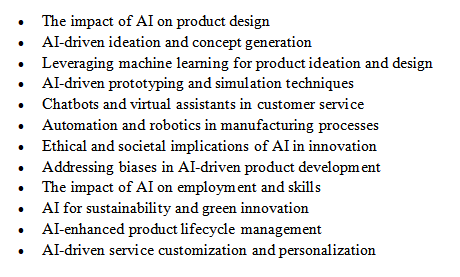党的二十届三中全会对进一步全面深化改革、推进中国式现代化作出战略部署,强调“高质量发展是全面建设社会主义现代化国家的首要任务”,“因地制宜发展新质生产力”。大数据技术和人工智能共同构成新质生产力的重要驱动因素。在此基础上,“人工智能产品与服务创新论坛”应运而生,旨在汇聚行业精英、学者专家及创新先锋,共同探讨如何在推动新质生产力发展过程中把握数智营销创新新趋势,实现理论与实践的双重飞跃。本次论坛是2023年“数智时代的营销创新”论坛的延续和发展。
本次论坛将围绕面向新质生产力发展、数智时代消费者行为变化下的人工智能产品和服务创新、数智技术在营销创新中的最新应用等核心议题展开深入交流。通过人工智能专家理论前沿讲授、数智营销实践专家案例分享、人工智能学者圆桌讨论等形式,促进跨领域思维碰撞,跨学科交流融合,激发营销创新灵感,为企业在复杂多变的市场环境中找到新的增长点,共同推动理论与实践迈向新高度。
会议主题:面向新质生产力的人工智能产品与服务创新
论坛日期:2025年8月22—23日
主办单位:一本道
联合主办单位:辽宁大学商学院,沈阳工业大学管理学院,
大连外国语大学商学院,辽宁工程技术大学一本道
支持期刊:
Asia Pacific Journal of Marketing and Logistics (SSCI, ABDC- A)
会议主席:
金立印 教授,复旦大学
Ian Phau 教授,澳大利亚科廷大学
张昊 教授,一本道
会议日程:
此次论坛拟于2025年8月22-23日分别进行参会嘉宾的报到、学术分享和企业参访交流等相关事宜。以下为本论坛的简要日程:
2025年8月22日 下午 | 参会嘉宾报到及会议材料领取 |
2025年8月23日 全天 | 论坛开幕式、主旨发言、学术分论坛、APJML特刊专题分论坛、教学及专业建设分论坛 会议地点:一本道 |
//mp.weixin.qq.com/s/ps4RDwNgzHrOuGI2zj_zag
会议投稿邮箱:[email protected](可投摘要,请注明是否投稿APJML专刊)
主讲嘉宾1
发言主题:人工智能与营销创新

金立印,现任复旦大学教授、博导,管理学院市场营销学系系主任。
研究方向为应用行为科学、消费者行为、以及企业市场战略。研究成果发表于Journal of Marketing, Journal of Consumer Research、Journal of Marketing Research,Journal of Personality and Social Psychology, Organizational Behavior and Human Decision Processes, Journal of Experimental Social Psychology等期刊。曾荣获中国管理学青年奖,目前担任中国高校市场学研究会副会长、《营销科学学报》的副主编。
主讲嘉宾2
发言主题:Code & Craft:Shaping Luxury Through AI and Innovation in Emerging Technology

lan Phau,现任澳洲科廷大学市场营销学院院长,Asia Pacific Journal of Marketing and Logistics (SSCI)主编,在欧洲、亚洲奢侈品及时尚产业(如LVMH, Prada, Longchamp Paris)具备资深商业咨询经验。研究成果发表于Journal of Business Research, European Journal of Marketing, Journal of Advertising, Journal of Advertising Research, Psychology and Marketing, Tourism Management等期刊。Ian教授成功主持举办四届Mystique of Luxury Brands Conference会议,于2020年荣获澳洲40位顶尖研究排行榜终身成就奖。
Call for Papers: Special Section of Asia Pacific Journal of Marketing Logistics on “Product and Service Innovation in the Age of Artificial Intelligence”
Artificial Intelligence (AI) has emerged as a pivotal force driving innovation in both product and service domains. By leveraging advanced technologies such as big data analytics, machine learning, and deep learning, AI is transforming the landscape of innovation (Zhang, Bai & Ma, 2022).
In the realm of product innovation, AI has demonstrated its impact on the product development process. For instance, AI played a crucial role in predicting the pandemic’s spread, developing new drugs, and creating new vaccines, thus leading to transformative changes in the healthcare sector (Longoni et al., 2019). Other notable examples include using AI to identify opportunities for innovation, screen useful user information, and generate innovative product ideas (Bouschery et al., 2023). From a service innovation perspective, AI significantly enhances customer experience by delivering personalized services (Chopra et al., 2024). For example, AI-driven chatbots and virtual assistants offer real-time customer support, leading to improved customer satisfaction and operational efficiency (Huang and Rust, 2018). Moreover, AI-based services can potentially streamline consumer consumption and experience by detecting potential problems early or offering recommendations for optimal usage (Puntoni et al., 2021). AI also paves the way for innovative business models, such as subscription-based services and on-demand platforms, by analyzing user behavior and preferences to provide customized recommendations and dynamic pricing strategies (Rust & Huang, 2020).
Despite the significant advancements and potential of AI, its current state of development suggests that it has not yet fully realized its promise, particularly in terms of fostering genuinely creative and innovative ideas (Truong & Spapagiannidis, 2022) or delivering truly authentic service experiences (Zhang et al., 2024). These limitations highlight the need for a more critical examination of AI’s role in innovation, exploring both its potential and its constraints. As AI continues redefining the landscape of product and service innovation, this special section of the Asia Pacific Journal of Marketing and Logistics (APJML) invites submissions that critically examine both AI’s positive and negative impacts on innovation. The topics suggested below cover a wide range of emerging trends, technologies, and strategic approaches in product and service innovation in the age of AI. We also welcome additional topics relevant to AI-driven marketing and align with the theme of this special issue.

Submission Guidelines
Asia Pacific Journal of Marketing and Logistics (SSCI, Impact Factor: 3.90) will publish a special section on “Product and Service Innovation in the Age of Artificial Intelligence” with the selected papers presented at the 2025 Digital and Intelligence Marketing Form at Shenyang.
The conference will select up to 10 best papers and invite the authors to submit these papers to APJML. The review process for all submissions will be managed by the Guest Editors, following the journal’s review process. The Guest Editors will make recommendations on the outcome of each paper. Details of the process will be provided in the invitation letter. Papers should be submitted via the APJML’s Editorial Manager online platform.
Submissions to APJML should be 8000 words in length, including references. Authors are encouraged to use online appendices for supplementary material that is useful but not central to the paper. Detailed submission guidelines for APJML and other relevant information can be found here: //Asia Pacific Journal of Marketing and Logistics | Emerald Publishing (emeraldgrouppublishing.com)
Important Dates
·Conference Paper Submission Deadline:2025.07.31
·Full Paper Submission Deadline: 2025.10.31
·Anticipated Publication Date: Fourth Quarter of 2026
Guest Editor Contact Information
Prof. Hao Zhang, School of Business Administration, Northeastern University, China. E-mail: [email protected]
Prof. Xiaoning Liang, Trinity College Dublin, the University of Dublin, Ireland. E-mail: [email protected]
Prof. Yang Sun, School of Business Administration, Northeastern University, China. E-mail: [email protected]
References
Chopra, R., Bhardwaj, S., Thaichon, P. & Nair, K. (2024). Unpacking service failures in artificial intelligence:
Future research directions. Asia Pacific Journal of Marketing and Logistics, //doi.org/10.1108/APJML-03-2024-0393
Huang, M. H., & Rust, R. T. (2018). Artificial intelligence in service. Journal of Service Research, 21(2), 155-172.
Longoni, C., Bonezzi, A. & Morewedge, C. K. (2019). Resistance to medical artificial intelligence. Journal of Consumer Research, 46(4): 629-650.
Ma, L., & Sun, B. (2020). Machine learning and AI in marketing–Connecting computing power to human insights. International Journal of Research in Marketing, 37(3), 481-504.
Puntoni, S., Reczek, R. W., Giesler, M., & Botti, S. (2021). Consumers and artificial intelligence: An experiential perspective. Journal of Marketing, 85(1), 131-151.
Rust, R. T., & Huang, M. H. (2020). The service revolution and the transformation of marketing science. Marketing Science, 39(1), 24-35.
Truong, Y., & Papagiannidis, S. (2022). Artificial intelligence as an enabler for innovation: A review and future research agenda. Technological Forecasting and Social Change, 183, 121852.
Zhang, H., Bai, X., & Ma, Z. (2022). Consumer reactions to AI design: Exploring consumer willingness to pay for AI-designed products. Psychology & Marketing, 39, 2171– 2183.
Zhang, R. W., Liang, X., & Wu, S. H. (2024). When chatbots fail: exploring user coping following a chatbots-induced service failure. Information Technology & People, 37(8), 175-195.